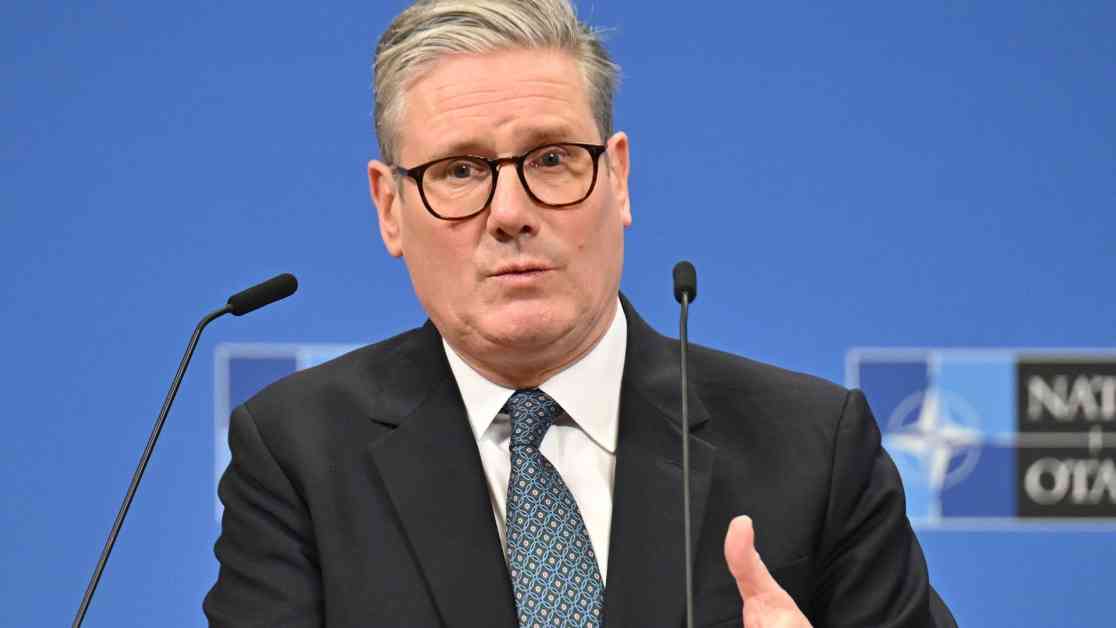Summary: Brexit Remainers are excited over Keir Starmer’s meeting with EU officials, hoping he will end Brexit. They believe Brexit has caused economic ruin, despite countries like Germany and France facing similar challenges due to Covid and war. Remainers deny any benefits of Brexit and may overlook potential advantages, such as avoiding tariffs from Donald Trump. Critics argue that rejoining a customs union would involve tariffs as well, making their stance contradictory. Additionally, Labour’s promises of cost savings and job creation through initiatives like “GB Energy” have proven to be unrealistic, highlighting a lack of foresight in their plans.
Brexit Remainers’ Excitement Over PM’s EU Meeting
Brexit continues to be a divisive topic in the UK, with Remainers eagerly anticipating Keir Starmer’s interactions with EU leaders in hopes of reversing the decision. The excitement among this group is palpable, akin to the enthusiasm of children eagerly awaiting Christmas morning. However, their fervor may be clouding their judgment, as they persist in blaming Brexit for the country’s economic woes without considering the broader context.
While Remainers argue that Brexit has led to the UK’s economic downfall, they fail to acknowledge that countries like Germany and France are facing similar challenges due to external factors such as the Covid-19 pandemic and ongoing conflicts. By attributing all economic hardships solely to Brexit, they overlook the complexities of global issues affecting multiple nations.
Denial of Brexit Benefits and Potential Pitfalls
Despite claims by Remainers that Brexit has brought no benefits, the reality paints a different picture. Numerous advantages have emerged post-Brexit, ranging from increased trade opportunities to regulatory autonomy. However, when confronted with these benefits, Remainers often dismiss them or fall silent, refusing to acknowledge any positive outcomes resulting from the UK’s departure from the EU.
One potential benefit that may arise from Brexit is the avoidance of tariffs imposed by Donald Trump, should he choose to target Brussels while sparing the UK. This scenario highlights the intricacies of international trade relations and the nuances of Brexit’s impact on the UK’s economic landscape. Remainers’ steadfast opposition to any tariffs fails to consider the contradictions in their stance, particularly if they seek to rejoin a customs union that imposes similar trade restrictions.
Labour’s Unrealistic Promises and Policy Failures
The Labour party’s promises of cost savings and job creation through initiatives like “GB Energy” have fallen short of expectations, revealing a lack of foresight and realism in their policy proposals. Claims of reducing bills by £300 and generating 1,000 jobs have proven to be exaggerated, with the actual outcomes far less impressive than initially projected.
Jurgen Maier, the mastermind behind “GB Energy,” now anticipates creating only 200-300 jobs by 2030, a far cry from the ambitious targets set by Labour. The promise of significant bill reductions has also been debunked, underscoring the importance of transparency and accountability in political promises. As Labour’s initiatives fail to deliver tangible benefits to the public, concerns over the party’s ability to enact meaningful change grow among voters.
Inadequacies in Military Spending and Equipment Procurement
The recurring issues of inadequate military spending and subpar equipment procurement within Whitehall have plagued the UK’s Armed Forces for decades. Despite numerous reviews exposing inefficiencies and wasteful spending, little progress has been made in rectifying these systemic failures. From malfunctioning ships to outdated body armor, the Armed Forces continue to face challenges due to insufficient resources and mismanagement.
The lack of strategic planning and oversight in military procurement has led to staggering costs and compromised operational effectiveness. As the government considers increasing military spending, questions arise about whether these funds will address the root causes of inefficiencies within the Ministry of Defence (MoD). The urgent need for reform and accountability in defense spending remains a pressing concern for national security and operational readiness.
In conclusion, Brexit Remainers’ optimism over Keir Starmer’s EU meeting reflects their desire to reverse Brexit’s impact on the UK economy. However, their narrow focus on blaming Brexit for all economic challenges overlooks the broader context of global issues affecting multiple countries. Labour’s unrealistic promises and policy failures highlight the need for transparent and achievable policy proposals to gain public trust. Additionally, the deficiencies in military spending and equipment procurement underscore the importance of strategic planning and oversight in national defense initiatives. As the UK navigates these complex challenges, a nuanced approach that considers various perspectives and long-term implications is crucial for informed decision-making and effective governance.













